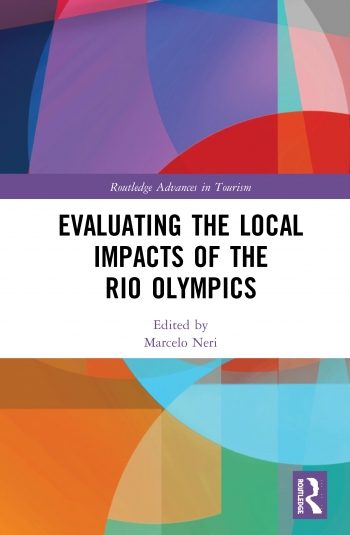The book looks specifically at Rio’s population in relation to control groups, covering traditional factors linked to Olympic legacies, such as tourism, urban infrastructure and sport, as well as everyday aspects of life in the city, like education, employment and housing.
Evaluating the Local Impacts of the Rio Olympics, a book published by Routledge and organized by Marcelo Neri, the director of FGV Social, evaluates the local impacts of the Rio Olympics. Over the course of 16 chapters, it compares Rio 2016 to other Olympic experiences and analyzes how the games influenced the city. The book presents evidence about the evolution of multiple social indicators in the run-up to the games, comparing the municipality of Rio de Janeiro in this phase with previous periods since 1970 and with other locations.
The book looks specifically at Rio’s population in relation to control groups, covering traditional factors linked to Olympic legacies, such as tourism, urban infrastructure and sport, as well as everyday aspects of life in the city, like education, employment and housing. It identifies and provides in-depth analysis of sensitive issues related to the Rio Games, such as mobility, gentrification and attempts to clean up Guanabara Bay.
As well as providing a broad analysis based on various objective dimensions during the period of mega-events in the city, the book looks at the perceptions of the same people over different moments in time in the cities of Rio de Janeiro and Sao Paulo. In particular, it describes how the implementation of different public policies and services has evolved in relation to the demands of the population.
The Rio Olympic Games took place amid huge economic challenges and persistent inequalities. Contrary to all previous Olympic experiences, Brazil faced the worst economic recession in its history in the final phase before the games. Furthermore, the increasing use of social networks and large street protests posed new challenges in the land of carnival and in other cities.
For more information about the book, click here.





